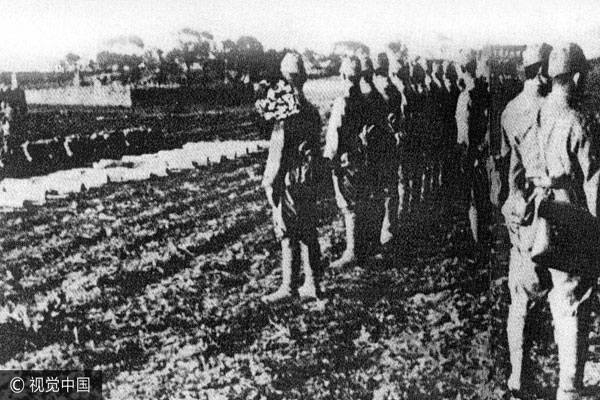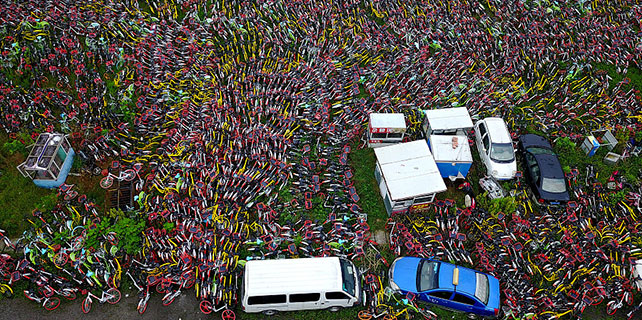Documentary in Japan reveals dark history of 'poison gas island'
 |
|
Numerous Chinese civilians are killed by the chemical weapons used by the invading Japanese army in northeast China, file photo. [Photo/VCG] |
History should never be forgotten
Just like the documentary about the atrocities of Japanese Unit 731, the TBS documentary has also triggered heated discussions in Japanese society. Many viewers said they were shocked and felt that this part of history should never be forgotten.
Japanese writer Masahiro Yamazaki said in a post online that the documentaries released recently by the media choose to face Japan's dark history squarely in order for the nation to have a bright new future, but there are still some people who are plagued by militarist ideals and turn a blind eye to the truth.
Duan Yuezhong, an overseas Chinese resident in Japan, told Xinhua that the documentaries released recently about Japan's war crimes appeal to the conscience of Japanese citizens and prompt them to reflect on the war history.
He also pointed out that broadcasting these documentaries should not mean the end of reflection, but rather the beginning of it; they should serve as an inspiration for digging out more truth and reflecting on more, if not all, historical facts.
Ayase, a famous Japanese actress, said for her part, at the end of the documentary that when she was listening to Fujimoto, she once again felt the terror of war, and the preciousness of peace.
"I hope more people could hear the story of Mr. Fujimoto," she said.
















